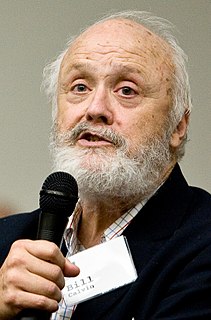A Quote by Tony Abbott
Another big problem with any Australian emissions reduction scheme is that it would not make a material difference to atmospheric carbon concentrations unless the big international polluters had similar schemes.
Related Quotes
If the relatively rich participating countries want to stabilize atmospheric concentrations of greenhouse gases, they will have to pay at least some poor countries to reduce their emissions. Achievement of substantial reduction in this way implies international transfers of wealth on a scale well beyond anything in recorded history. There is no effective political support for such a Herculean effort, particularly in the United States.
Obviously, psychologically, it would make all the difference in the world. But I think it would also make a big difference financially. If people understood, that, "Y'know, having all those things, that I was told I was supposed to have, to be successful, really is not a measure of success, and I can't have them anyway -" Yeah, that would make a big difference. It would've made a big difference, I think, in my life.
We don't need a War on Carbon. We need a new prosperity that can be shared by all while still respecting a multitude of real ecological limits - not just atmospheric gas concentrations, but topsoil depth, water supplies, toxic chemical concentrations, and the health of ecosystems, including the diversity of life they depend upon.
The world beyond 450 ppm atmospheric concentrations of carbon dioxide, the world that crosses carbon cycle tipping points that quickly take us to 1000 ppm, is a world not merely of endless regional resource wars around the globe. It is a world with dozens of Darfurs. It is a world of a hundred Katrinas, of countless environmental refugees
Kyoto is likely to yield far less than the targeted emissions reduction. That failure will most likely be papered over with creative accounting, shifting definitions of carbon sinks, and so on. If this happens, the credibility of the international process for addressing climate change will be at risk.
President Bush insisted today that he was not caving in to big-money contributors, big-time lobbyists, and overall industry pressure when he broke a campaign promise to regulate carbon dioxide emissions from power plants. But the air was thick today with accusations from people who believe that's exactly what happened.
I am troubled by the lack of common sense regarding carbon dioxide emissions. Our greatest greenhouse gas is water. Atmospheric spectroscopy reveals why water has a 95 percent and CO2 a 3.6 percent contribution to the 'greenhouse effect.' Carbon dioxide emissions worldwide each year total 3.2 billion tons. That equals about 0.0168 percent of the atmosphere's CO2 concentration of about 19 trillion tons. This results in a 0.00064 percent increase in the absorption of the sun's radiation. This is an insignificantly small number.
































